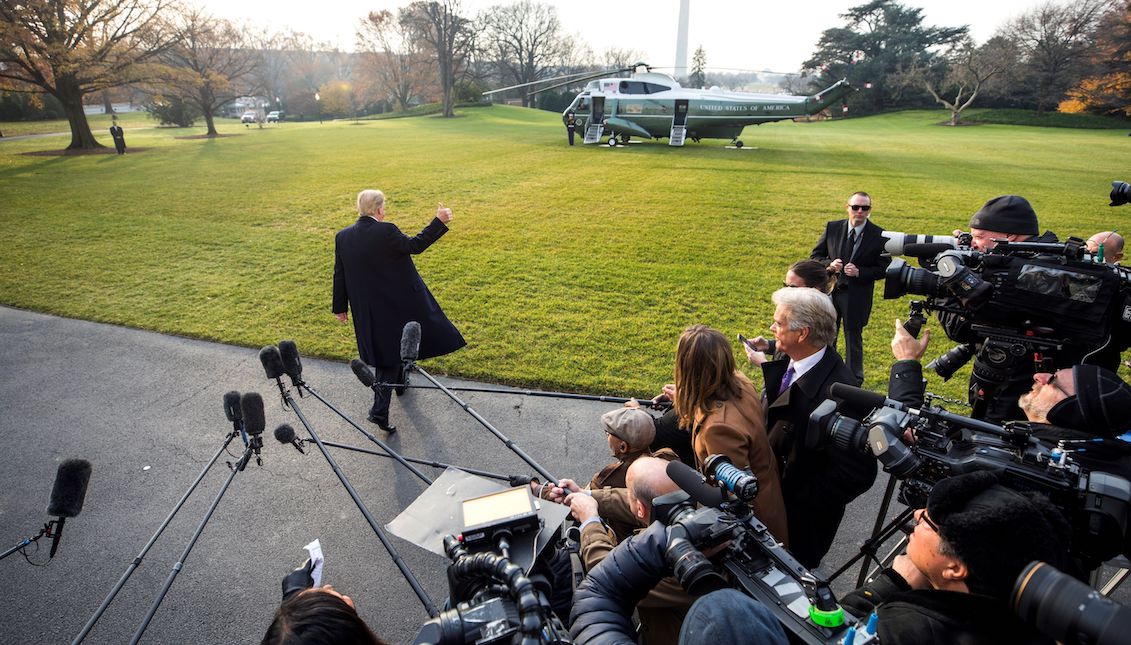
"Bread and Tweets"
The digital era has managed to transform us all into witnesses of Donald Trump's presidential reality.
Only months before completing a year in office, President Trump has made his term the most difficult political period to explain in contemporary American history.
Just a week ago the president shared on Twitter three videos showing Muslim individuals attacking people and breaking Christian icons, as CNN reported at the time. The videos had previously been posted by Jayda Fransen, the leader of Britain First - an ultranationalist and far-right English political group - and the US president didn't measure the scope of his media profile (he has about 44 millions of followers on Twitter) when, in an apparently approving nod, decided to share those videos.
In such a situation, the difference between political proselytism and propaganda became rather blurred. Was the US president supporting an extremist movement that favored his own campaign positions? Or was he using unverified images to imply the need to carry out his political agenda?
Trump has become the ruler of social networks; the president obsessed with the headlines; the president who suffers from criticism in the media. His need for approval and his intermittent relationship with reality often remind us that, first of all, Donald Trump has always been an entertainer.
It's just that now, instead of entertaining in television programs, the president juggles his statements, putting the public and society in suspense, whose future depends on his ability to make decisions.
Since appearing on that Forbes’ list in 1982, the tycoon's obsession with appearing on the front pages has escalated.
Beauty contests, sporting events, failed academic centers and an ability to survive bankruptcy have made the new president a recurring figure in the small and big screen and his name is today the most repeated topic in social network headlines.
RELATED CONTENT
He has transformed his government cabinet into a staff of characters worthy of a reality show, and his famous phrase "you're fired" - which made him famous in The Apprentice - is projected on the way he is reforming his team again and again, as the month's pass.
Bret Stephens remembered in his column for the New York Times Peter Pomerantsev's book Nothing Is True and Everything Is Possible, where the author defines reality as "factual truth with interpretive possibilities", to refer to presidential diatribes in matters such as the recording of Access Hollywood or the size of his audience during Inauguration Day.
Pomerantsev highlights in his book the phrase of a television presenter that fits like a glove to the current president: "Politics must be lived as if it were a movie".
For the Roman emperors, the formula was simpler: "Bread and Circus" (Panem et circenses), which adapted to the Trump era would be something like "tweets and verbiage". Who will the president fight with today? Is there really a Russian conspiracy to take control of the White House? What did Trump say in his last tweet?
We live in a string of "entertaining" events, which we do not know if are exactly true, and that will give a thousand ideas about conspiracies to Hollywood’s scriptwriters, while the country is divided between those who live a fantasy and those who try to survive the consequences of a hectic policy.
The key tool remains the same: to distract. While the headlines are fueled by digital quarrels, the Republican majority managed to pass the most important tax reform in the nation since the Reagan era, and very few citizens have read the small print of the contract where a deep blow to the American middle class is projected.
And from the trenches of journalism, a blunder has been committed and this text perpetuates it: to question the president has become a tacit and constant tribute, whose social cost we’ll only see in the years to come.











LEAVE A COMMENT:
Join the discussion! Leave a comment.